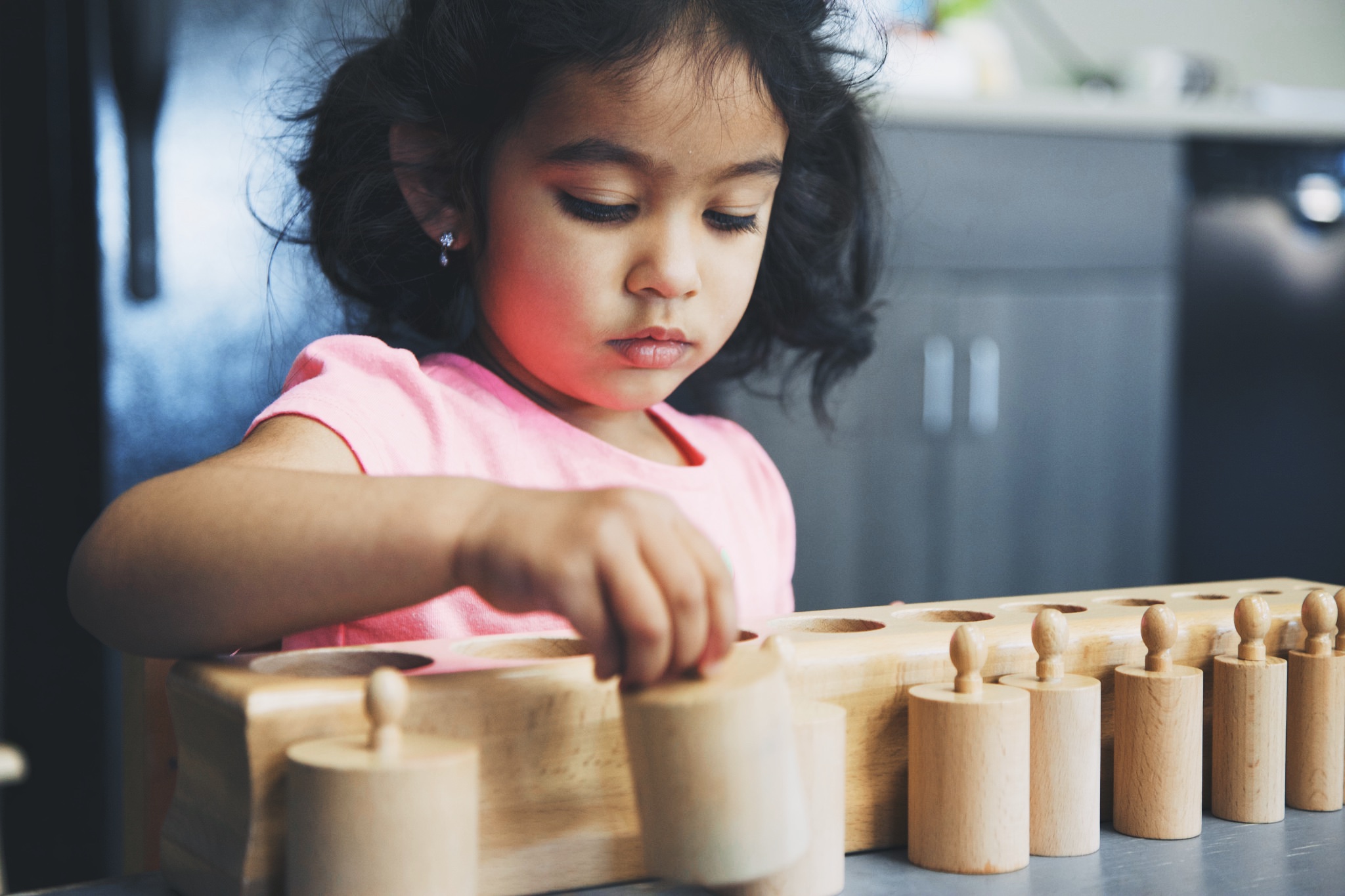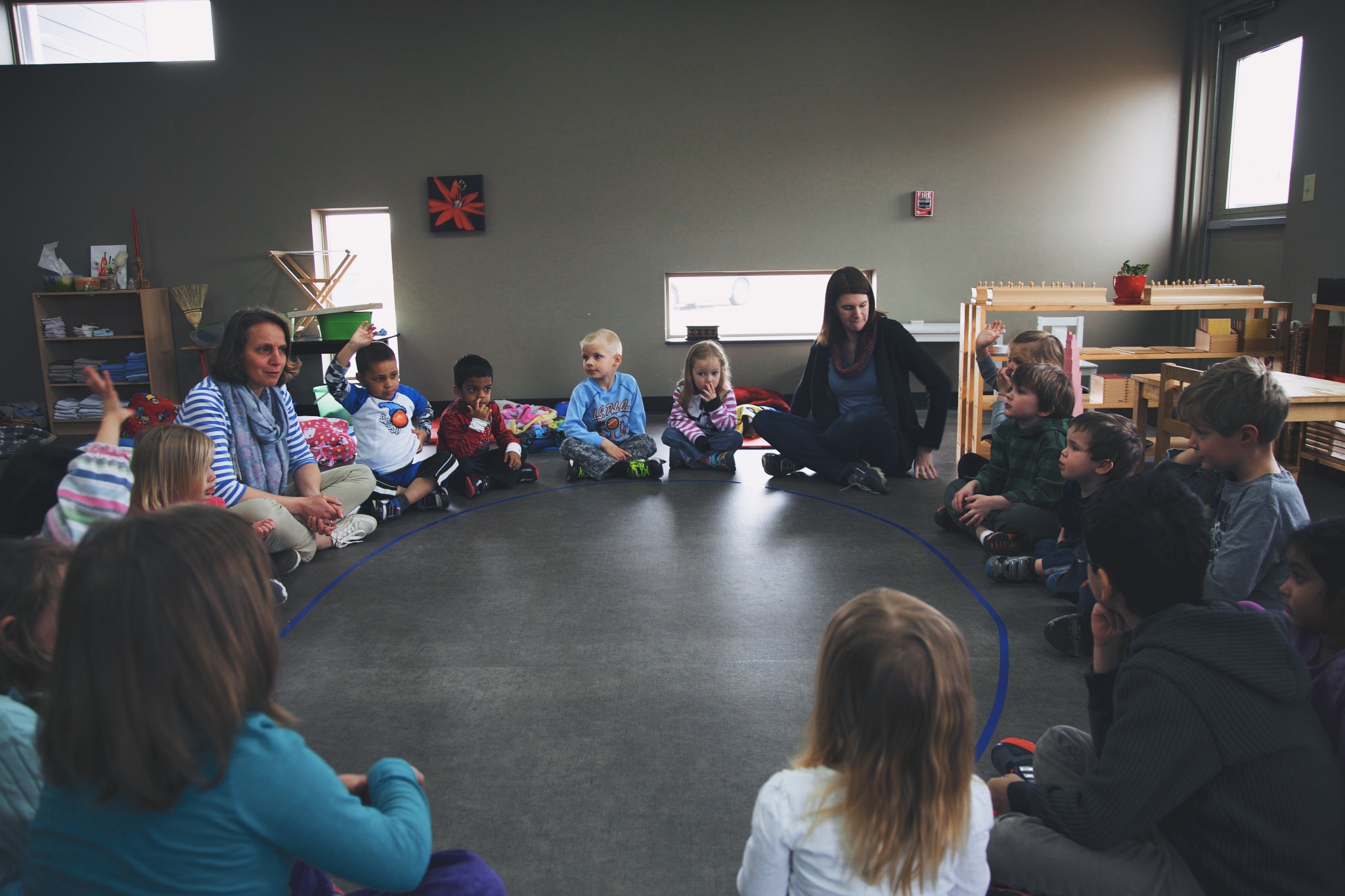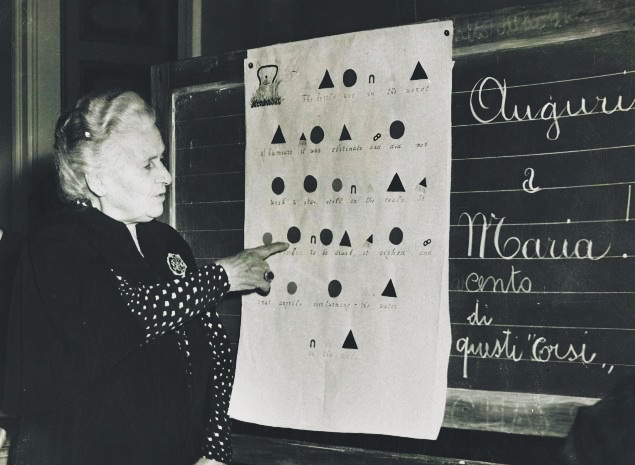Drawn Together
Thoughts & Reflections
Love is something that we rarely talk about in education. At least not in a concrete, formal sense. In many respects, love is often perceived of as too familial to be appropriate for the classroom. Discussions of love are often reserved for the home. Yet, children somehow come to acquire a sense of what love means.
Nowadays, love is typically conceived of in terms of the pixie dust of Peter Pan, or the ruby slippers of Cinderella, as she courts the inescapable prince. Or, further still, as Montessori writes, we hear grand tales of love from “poets and prophets” alike. Some of these actually make it into the classroom.
Love, said simply, is in the air.
Montessori does something characteristically unique with love: she attempts to bring it down to earth, so to speak, as she tries to think of love in terms of actual, practical, real applications. We wouldn’t think to call it the science of love, but she does implore us to embrace its lasting power, and study its strengthening effects. As she conjectures:
“ Love holds the universe together because it is a real force, and not just an idea. ”
Maria Montessori devotes her concluding remarks, in what is widely considered her magnum opus, The Absorbent Mind, to a conversation on the nature of love. In a chapter entitled, ‘Love and It’s Source – The Child’, she is both reflective and prophetic. She creates a series of healthy thought-experiments by which the reader must contemplate, as she sets out to analyze the power that love harnesses and, as she states rather convincingly, how it can serve to bring about a new approach to a harmonious planetary existence – said more romantically, how love can lay the foundations for world peace.
Montessori sets the stage by describing a social gathering comprised of a heterogeneous group of adult individuals.
“Among them may be matriculates and professors, lawyers, doctors and those who could be their clients or patients. In Europe we used to have students from all parts of the world, and in America one of them was an anarchist. But in spite of all this mixing, there was never any friction. What made that possible? It came about because we were drawn together by a common ideal.”
The common ideal, of course, is children. They have seemingly special powers, she exclaims. Despite politics, or religion, or class, or any of the things that often divide us as adults, we are curiously united in our love of children. Why? “It is from this love that comes the child’s power of unity,” Montessori responds. And, as she presciently stresses, we often underestimate the nature of this love and its subsequent power.

“If we want to produce harmony in the world, it is clear that we ought to think more about this. We should study its implications. The child is the only point on which there converges from everyone a feeling of gentleness and love.”
Montessori continues:
“ People’s souls soften and sweeten when one speaks of children; the whole of mankind shares in the deep emotions which they awaken. The child is a well-spring of love. ”
As adults, we have a tendency to feel hardened by life. We become skeptical of others, guarded against ourselves. We don’t take things at face value. Instead, we want to explore their depths to find out if what they profess is actually true.
Children, however, take a different approach to life, one that many of us find ourselves inspired by. They treat each day as a new adventure in which they literally don’t know what they will discover. Still, they remain open to what it may usher in, as they skirt on the surface with playful ease, delighted by their circumstances.

Children are inspired by the world. In turn, they inspire in us, as a collective of adults, a renewed sense of hope and a promise for everything to come. As Montessori poetically articulates, “In the vicinity of children mistrust melts away; we become sweet and kindly, because, when we are gathered about them, we feel warmed by that flame of life which is there, where life originates.” In adults, however, there is a mechanism of self-defense, evolutionary or otherwise, that often trumps our sense of love. Or, as Montessori describes it, the impulse for defense is ‘superimposed’ upon our impulse for love. How do we shake free?
There must be another way…
Writing at the end of World War II, as a witness to unspeakable, paralyzing atrocities, on a scale and scope never before seen, Montessori implores us to take a step back, to study the phenomenon of love, with fresh, careful, and uninhibited eyes. If love holds the secret power to unite mankind, she says, why shouldn’t we spend more time concentrated on its practical implications. In particular, why don’t we focus our attention, and turn towards the nature of childhood: the child is the point of convergence.
As Montessori unravels traditional assumptions of love, those serenaded to us by ‘prophets and poets’, she reminds us of an important point. Unlike grammar or math, love can’t be taught in school. No matter how many prophets we read, or how many poems we remember by heart, these ideals are but ideals, and love, real love, has a basis in reality. We can feel it in our heart. The reality of love is what Montessori wishes to pursue.
“ We must come to learn that if we feel the reality of this love, it is not because we were taught it in school. ”
Montessori, then, changes the landscape of how we normally think about love by shifting the terrain. She tries to tell the story of love from the ‘point of view of life itself’. It’s not about desire or imagination, she expresses, but a commitment to reality. A commitment to see things how they are, and envision what they might become.

With that, Montessori creates the foundations for a science of education, one she desperately, and optimistically, thinks will help humankind harness the power of love. Children are often the source of this shared sense of love. Montessori has a wonderful way of putting this into perspective:
“ Love has not been analyzed by the poets and by the prophets, but it is analyzed by the realities which every child disclosed to himself. ”
Love draws us together. The love of learning draws us further towards what Montessori envisioned. While love may not be overtly taught, it is something ever palpable, in classrooms throughout the world. We can feel it in the pride our teacher tries to hide as we accomplish a task only days before we were too afraid to even try. We wonder, with the generosity only children can deliver, what these classrooms of love might one day yield.
Written by:
Bobby George





